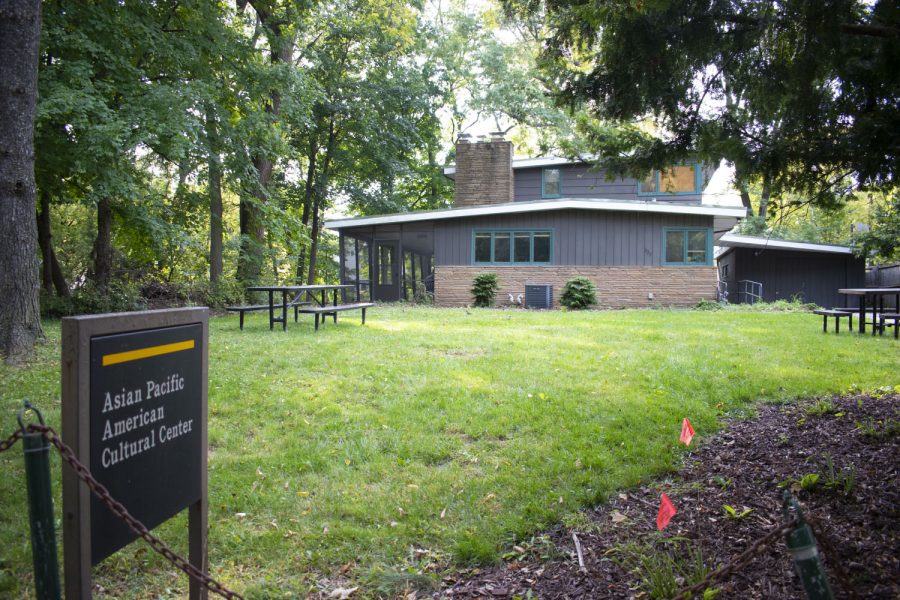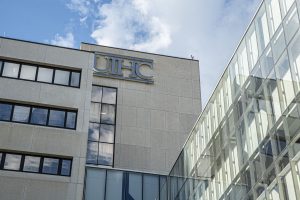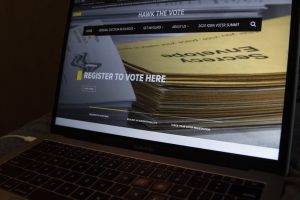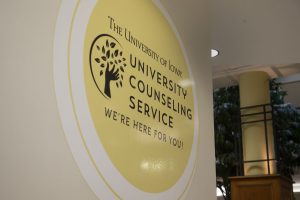University of Iowa cultural centers create sense of community virtually during COVID-19
The University of Iowa’s four cultural centers will not open their physical spaces this fall, which has resulted in the centers working to create community online with events, drop-in hours, and study sessions.
The Asian Pacific American Cultural Center is seen Wednesday, Sept. 23, 2020.
September 24, 2020
When Isabela Flores first walked into the Latino Native American Cultural Center last fall, she felt safe and valued. Just a year later, she’s taking on the position of the LNACC’s interim coordinator while staying at home. She is working toward creating a sense of belonging virtually, rather than in a physical, safe space.
The University of Iowa’s four cultural centers will not open their doors to students this fall because of COVID-19. Flores, who graduated in the spring with a degree in elementary education, said she has been working alongside the other centers’ leadership to continue even when they can’t see each other in-person — a feat she said was eye-opening because of the collective learning of how to alter programming.
“We are all in a new reality, so I get to start out new,” she said. “There’s power in that, but there’s also nervousness, like any job. I know I’m supported by the people around me and we are all exuding patience and flexibility. I would love to be in-person and be physically in a space, but I’d rather everyone be safe.”
As Latinx Heritage Month continues, Flores and LNACC Student Lead McKrina Lopez said they are surprised by the innovation that has come from planning events to celebrate their heritage.
Lopez said even though programming looks different this year than it has in the past, LNACC is still highlighting the month’s purpose.
“We are students, so we understand the Zoom fatigue — we have since March — and we don’t want to have another lecture,” Lopez said. “We just want engagement within our community. We want to make sure they are able to take part in events. It’s a lot of thinking and seeing how things work.”
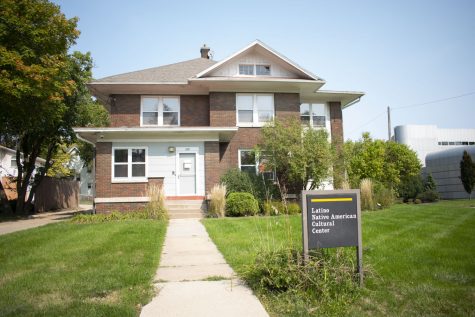
Lopez and Flores said they experimented with digital platforms such as Zoom and Instagram to develop the best events possible this month. Both said Instagram Live worked the best to interact with the community they serve.
RELATED: University of Iowa Latino and Native American Cultural Center names new interim coordinator
When Prisma Ruacho became the coordinator of the Asian Pacific American Cultural Center in 2018, she said she never imagined she would be organizing programming online.
She said the move online since March has been disheartening, but she’s trying to preserve the sense of community students had when they went to the center in past years.
“Some of the students who are returning still have connections and they can still do study sessions on Zoom and be in community with each other and hold one another accountable,” Ruacho said. “It’s sad to see the loss of an authentic community, because new students don’t have that. It’s harder for them to join a Zoom call or any type of virtual event not knowing anybody in that space. It’s a little bit awkward and exhausting to try and make friends on Zoom.”
Ruacho added that while some freshmen have reached out, it’s now a daunting and lonely experience compared to the casual, open system where students could just walk into the APACC house.
While most of the centers are starting up more virtual programming, Multicultural and International Student Support and Engagement as a whole is a bit behind, said Interim Associate Director Thomas Arce.
Arce said because of the August derecho, training for students and staff members at the centers had to be pushed back to ensure everyone could access sessions. However, they said it is important to MISSE and the individual cultural houses that the delayed start does not impact their future events.
“We are taking it slow and not rushing to get something out of the gate,” Arce said. “We are being really calculated and making sure [our programs] are very calculated. We are trying to have an impact and looking at what makes sense for each center. The cultural centers are not doing a one size fits all approach, [programming] will be specific to what the communities of the centers need.”
One of these programs, Arce said, is the Afro-American Cultural Center’s Black Student Support Group. They said this specific group came from Healing Spaces, a biweekly space that was created this summer for students to share in community and conversation.
RELATED: Interim Associate Director for the Office of MISSE to maintain sense of community online
Arce said individualization in events is important during 2020, because every community needs something different.
“Each of the centers are still working on their calendar [of events] right now,” they said. “To gauge how students are feeling right now and in terms of support features, we are using data from the Excelling at Iowa survey to see what students need and trying to connect students to multicultural student organizations.”
The Pride Alliance Center — which did get programming off the ground — has opted to do weekly virtual support hours over Zoom.
Joseph Haggerty, UI Spectrum President and USG LGBT Constituency Senator, said he knows the Pride House’s events, will have the same energy as in past years even with the virtual format. He said that engaging via video calling can be difficult, but it’s still how people make connections.
That’s how I made friends,” he said. “It is hard to transfer completely online, but we’ve been working through it together and everyone is learning… I’m excited to see what can be done.”
As programming continues, Ruacho said it is difficult to plan events without thinking about what’s missing. Even though things are extremely different at the cultural centers, she said students will still be supported and she’s excited to see where things go.
“I think people really miss the space,” the coordinator said. “Student organizations want to use the space — students have asked to study on our lawn. We’re trying to figure out how things can be. It’s sad, and my house isn’t the same because it doesn’t have the people or the voices, but we will get through this together.”



